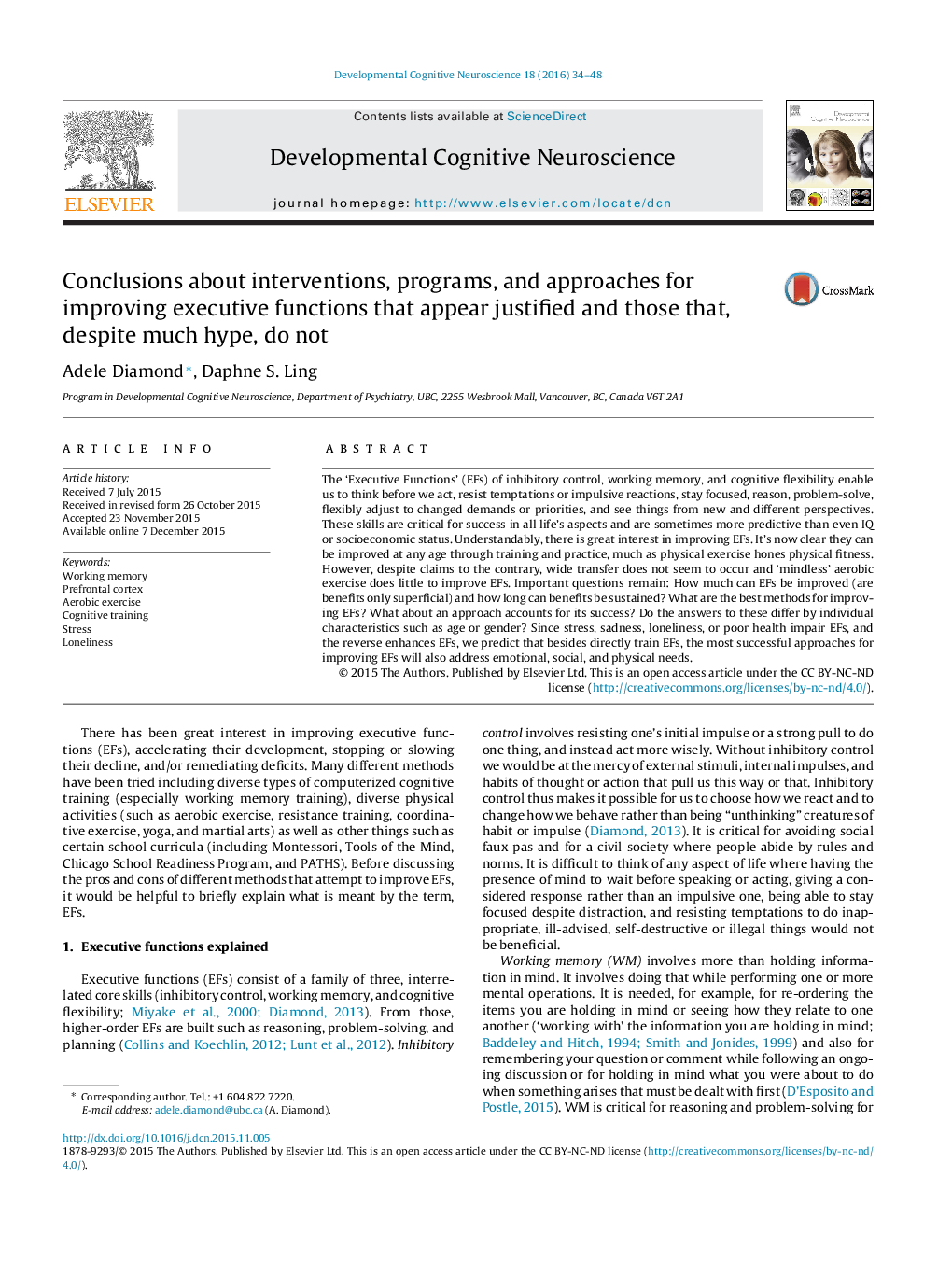| کد مقاله | کد نشریه | سال انتشار | مقاله انگلیسی | نسخه تمام متن |
|---|---|---|---|---|
| 4316500 | 1613105 | 2016 | 15 صفحه PDF | دانلود رایگان |
The ‘Executive Functions’ (EFs) of inhibitory control, working memory, and cognitive flexibility enable us to think before we act, resist temptations or impulsive reactions, stay focused, reason, problem-solve, flexibly adjust to changed demands or priorities, and see things from new and different perspectives. These skills are critical for success in all life's aspects and are sometimes more predictive than even IQ or socioeconomic status. Understandably, there is great interest in improving EFs. It's now clear they can be improved at any age through training and practice, much as physical exercise hones physical fitness. However, despite claims to the contrary, wide transfer does not seem to occur and ‘mindless’ aerobic exercise does little to improve EFs. Important questions remain: How much can EFs be improved (are benefits only superficial) and how long can benefits be sustained? What are the best methods for improving EFs? What about an approach accounts for its success? Do the answers to these differ by individual characteristics such as age or gender? Since stress, sadness, loneliness, or poor health impair EFs, and the reverse enhances EFs, we predict that besides directly train EFs, the most successful approaches for improving EFs will also address emotional, social, and physical needs.
Journal: Developmental Cognitive Neuroscience - Volume 18, April 2016, Pages 34–48
